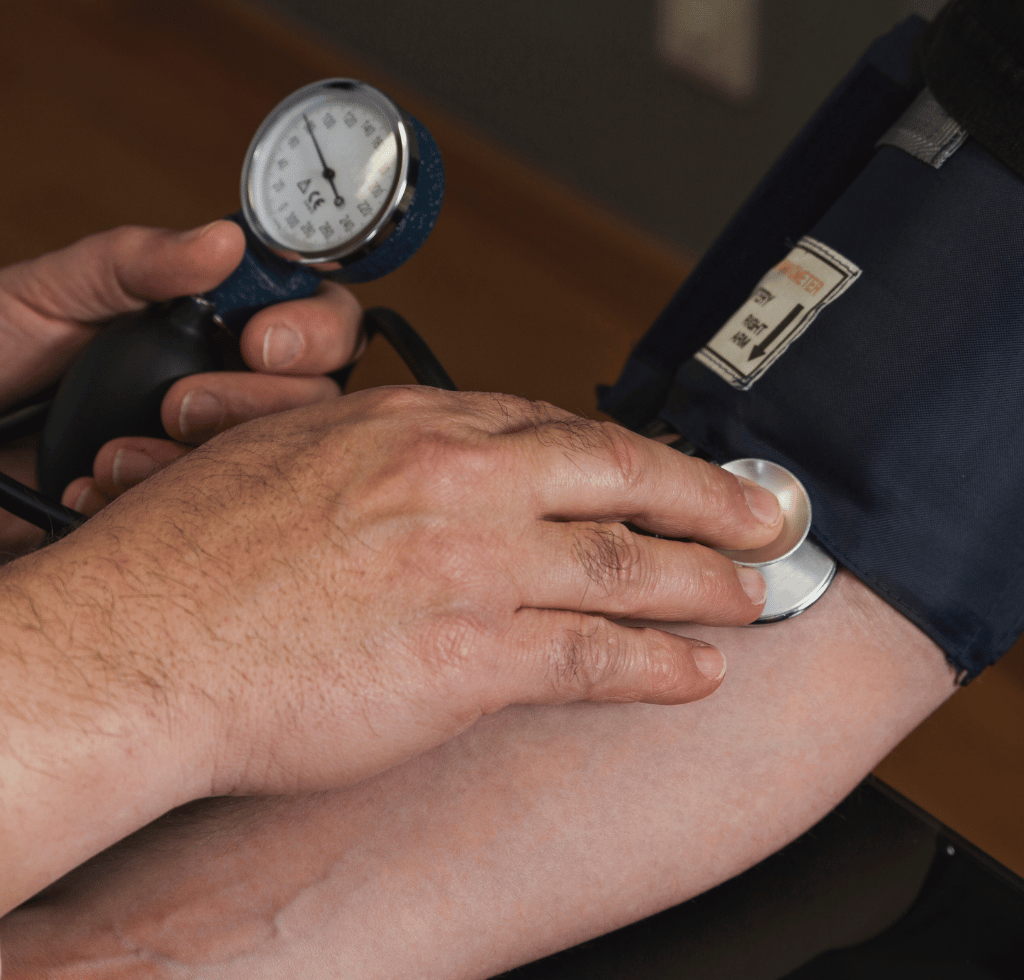Diabetic neuropathy, a nerve condition associated with diabetes, can have profound impacts on one’s health and quality of life. It typically affects the nerves in the feet and hands, leading to sensations of numbness, pain, or weakness. As diabetes becomes increasingly prevalent globally, understanding and preventing diabetic neuropathy is more important than ever.
Diabetic neuropathy can manifest in various forms, such as peripheral neuropathy, which is the most common and affects the feet and hands, and autonomic neuropathy, which impacts bodily functions like digestion and heart rate. The consequences of this condition range from discomfort to severe complications, including infections, foot ulcers, and in extreme cases, amputations.
Why Prevention is Key
Preventing diabetic neuropathy is crucial for several reasons. Firstly, once neuropathy develops, it can be challenging to reverse. The nerve damage is often permanent, meaning that prevention is far more effective than trying to cure or mitigate the condition after it has occurred.
Moreover, prevention of diabetic neuropathy aligns with overall diabetes management. By focusing on preventing neuropathy, individuals are concurrently managing their diabetes more effectively. This dual benefit enhances general health and reduces the risk of other diabetes-related complications such as heart disease, kidney damage, and vision problems.

Maintain Optimal Blood Pressure Levels
Our third tip focuses on maintaining optimal blood pressure levels, a vital aspect in combating diabetic neuropathy. High blood pressure is widely known for its negative impacts on overall health, but its specific role in exacerbating diabetic neuropathy is less frequently discussed.
According to research, including insights from the National Institute of Diabetes and Digestive and Kidney Diseases, about 40% of people with diabetes also suffer from hypertension. This co-occurrence can significantly accelerate nerve damage in diabetic individuals.
The Role of Diet in Blood Pressure Management
Cutting Back on Salt
Reducing salt intake is a well-known strategy for managing blood pressure. However, it’s not the only dietary change that matters.
Embracing Potassium, Magnesium, and Fiber
A diet rich in potassium, magnesium, and fiber is crucial. Foods such as leafy greens, bananas, and whole grains can have a beneficial impact on blood pressure levels.
The Importance of Regular Physical Activity
Exercise Recommendations
The American Diabetes Association suggests at least 150 minutes of moderate-intensity exercise weekly. This could include activities like brisk walking, cycling, or gardening.
Exercise’s Dual Benefits
Regular physical activity is a double-edged sword for health. It not only aids in lowering blood pressure but also plays a significant role in controlling blood glucose levels.
Hydration and Blood Pressure
The Subtle Impact of Water
Hydration, though often overlooked, is essential in managing blood pressure. Aim for about 8 glasses of water a day, keeping in mind that individual needs may vary.
Weight Management’s Role
The Impact of Moderate Weight Loss
A study in the Journal of Hypertension highlighted that a moderate weight reduction of 5-10% can have a profound effect on improving blood pressure levels.
Strategies for Effective Weight Management
Adopting portion control, practicing mindful eating, and including various nutrient-rich foods in your diet are key strategies for effective weight management.
Lifestyle Choices and Blood Pressure
Reducing Alcohol and Quitting Smoking
Lifestyle modifications such as cutting down on alcohol and quitting smoking are vital. These habits are known to elevate blood pressure and can negate the benefits of a healthy lifestyle.
By implementing these strategies, you not only diminish your risk of diabetic neuropathy but also take significant steps towards overall better health. Managing blood pressure is more than just controlling a number; it’s about fostering a healthier environment for your body and nerves.
Embrace Nutritious Eating Habits
In our quest to prevent diabetic neuropathy, the second tip centers around the profound impact of dietary choices. The foods we consume play a significant role in managing blood sugar levels and overall nerve health, directly influencing the risk of developing neuropathy.

The Power of Specific Foods
Study Insights
According to a study in ‘Diabetes Care’, type 2 diabetics who included leafy greens, berries, and whole grains in their diet saw a 35% reduction in their risk of developing neuropathy. This underscores the importance of specific food choices in diabetic diets.
Blood Sugar Control and Diet
The Role of Low Glycemic Foods
The American Diabetes Association highlights the critical nature of blood sugar control, noting a substantial reduction in neuropathy risk with improved A1c levels. Incorporating low glycemic foods like sweet potatoes, lentils, chickpeas, apples, and pears is key in achieving this.
Fiber-Rich Food Choices
Opting for fiber-rich foods over high glycemic index options can significantly lower blood sugar spikes. For example, choosing brown rice over white rice can reduce the blood sugar rise by approximately 20%.
Antioxidants and Hydration
Importance of Antioxidant-Rich Foods
Vegetables like spinach, broccoli, and Brussels sprouts, along with fruits such as oranges and strawberries, are rich in antioxidants and play a crucial role in maintaining nerve health.
Hydration and Blood Sugar
A study in the ‘Journal of Clinical Endocrinology & Metabolism’ found that proper hydration is associated with a lower risk of high blood sugar, emphasizing the simple but effective strategy of choosing water over sugary drinks.
Managing Cholesterol with Healthy Fats
Recommendations from the American Journal of Clinical Nutrition
Replacing saturated fats with healthier options can reduce bad cholesterol significantly. Foods high in omega-3 fatty acids, like salmon, mackerel, walnuts, and flaxseeds, along with monounsaturated fats found in avocados, almonds, and olive oil, are recommended for cholesterol management.
By integrating these specific dietary choices, you are not just lowering the risk of diabetic neuropathy but also enhancing your overall health. It’s about making informed decisions that contribute to better diabetes management and general wellbeing.

Prioritize Foot Health and Hygiene
Taking the top spot in our preventive measures against diabetic neuropathy is the emphasis on foot health and hygiene. This is not merely about comfort but a vital component in preventing and safeguarding against serious complications. With over 70% of individuals with diabetes at risk of developing neuropathy, primarily affecting the feet, this aspect of care is crucial.
The Essentials of Daily Foot Hygiene
Importance of Regular Washing
Regular washing of feet with lukewarm water and gentle soap is essential. However, it’s important to avoid soaking the feet, as this can lead to skin maceration and increase the risk of infections.
Statistics on Foot Infections
Considering that up to 34% of diabetics experience foot infections at some point, this simple routine of daily foot washing can be significantly impactful in prevention.
The Need for Daily Visual Inspection
Reducing the Risk of Ulcers
Regular self-examinations of the feet can greatly reduce the risk of ulcers. It’s crucial to look for any changes or signs of infection, especially in hard-to-see areas like between the toes and around the toenails. Using a mirror or seeking assistance for these inspections is recommended.
Nail Care Considerations
Beyond Aesthetics
Properly trimmed and filed nails are essential to prevent complications like ingrown toenails, which can quickly escalate into serious infections for people with diabetes.
The Role of Moisturizing
Dual Benefits
Moisturizing the feet keeps the skin supple, reducing the risk of cracks that could lead to infections. However, it’s important to avoid applying moisturizer between the toes, where excess moisture can encourage fungal growth.
Selecting the Right Footwear
Footwear as Important as Medication
Choosing appropriate footwear is critical in diabetes management. Diabetic-specific shoes can significantly reduce the risk of foot ulcers, which are a major cause of hospitalizations among individuals with diabetes.
Tips for New Shoes
When it comes to new shoes, it’s important to break them in gradually to prevent blisters and sores.
The Benefits of Exercise
Improving Circulation
Engaging in activities that enhance circulation, like walking and swimming, can notably improve foot health. As research shows, improved blood flow can reduce the risk of peripheral neuropathy and its complications.
The Importance of Professional Foot Care
Regular Check-Ups
Regular consultations with a podiatrist are crucial for early detection and treatment of potential foot problems. Consistent podiatric care has been linked to an 85% reduction in the risk of diabetes-related amputations.
By prioritizing foot health and hygiene, individuals with diabetes can take a significant step towards preventing neuropathy and its associated complications. This comprehensive approach, combining daily care routines with professional check-ups, plays a fundamental role in maintaining overall foot health.
Final Thoughts on Preventing Diabetic Neuropathy
As we conclude our exploration of effective strategies to prevent diabetic neuropathy, it’s clear that a combination of proactive measures can make a significant difference. Prioritizing foot health and hygiene, embracing nutritious eating habits, and maintaining optimal blood pressure levels are not just isolated actions but part of an integrated approach to managing diabetes and its complications.
These strategies go beyond mere symptom management; they represent a holistic approach to health that can improve overall quality of life for those with diabetes. By implementing these tips, individuals can not only reduce their risk of diabetic neuropathy but also enhance their general well-being.
For more insights, watch this informative video:





